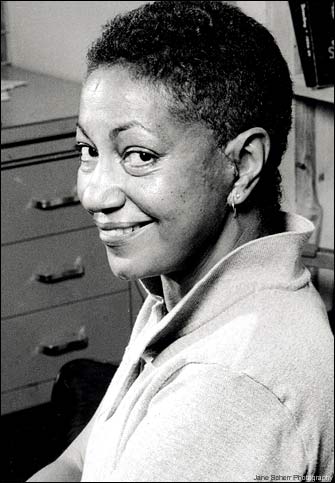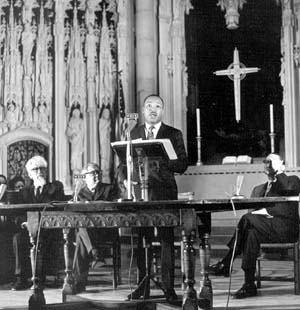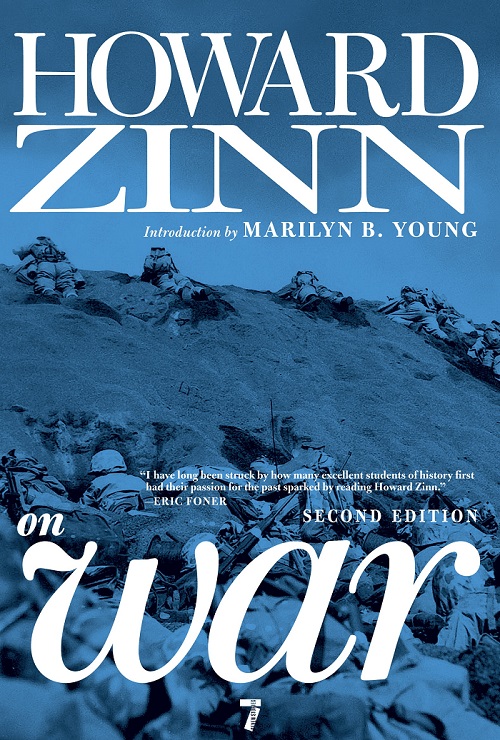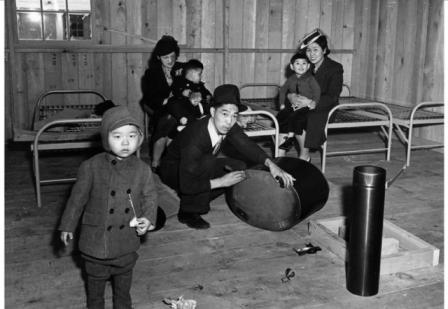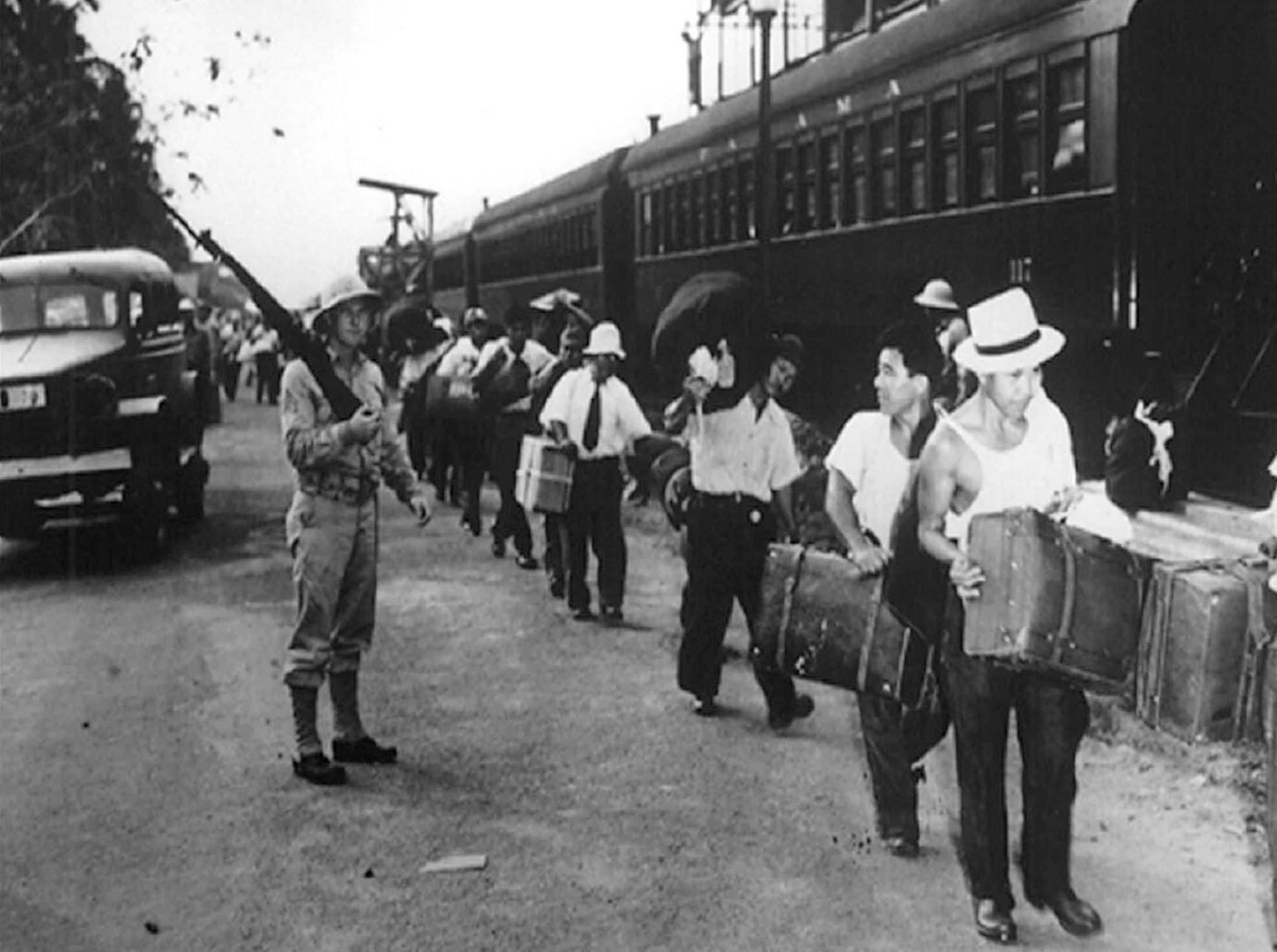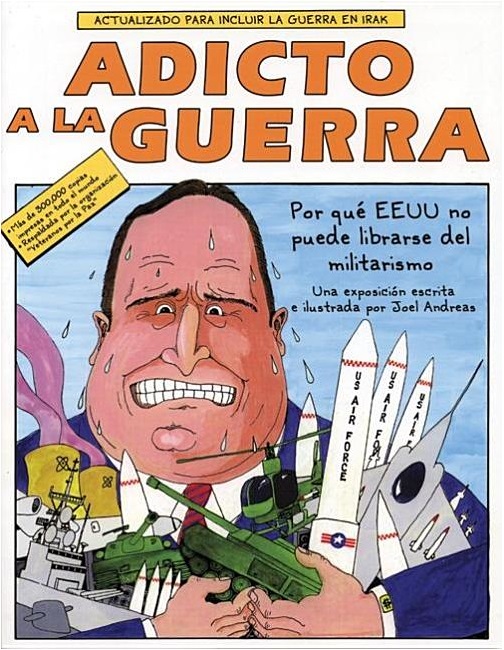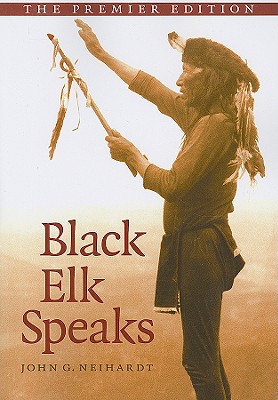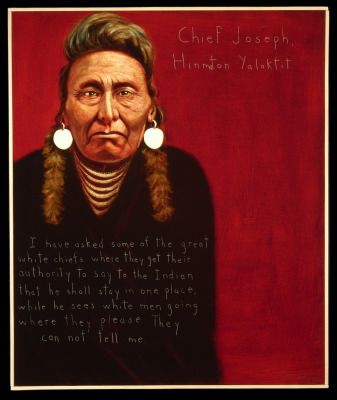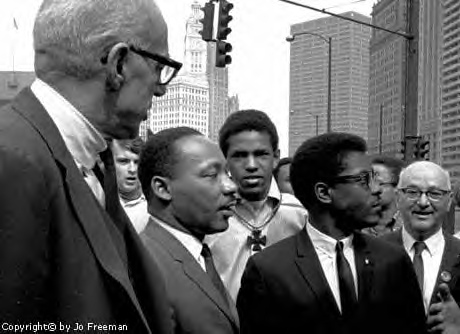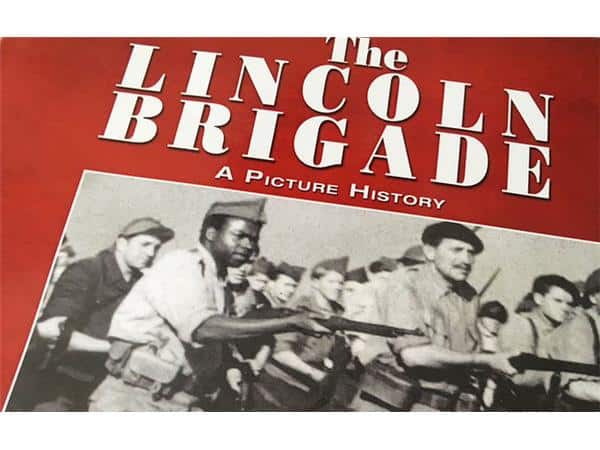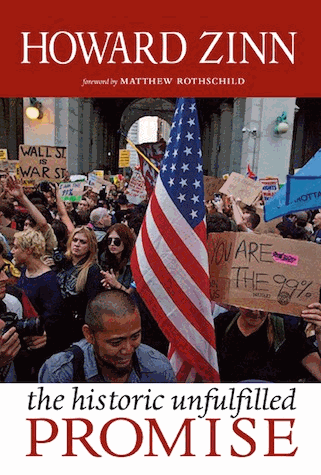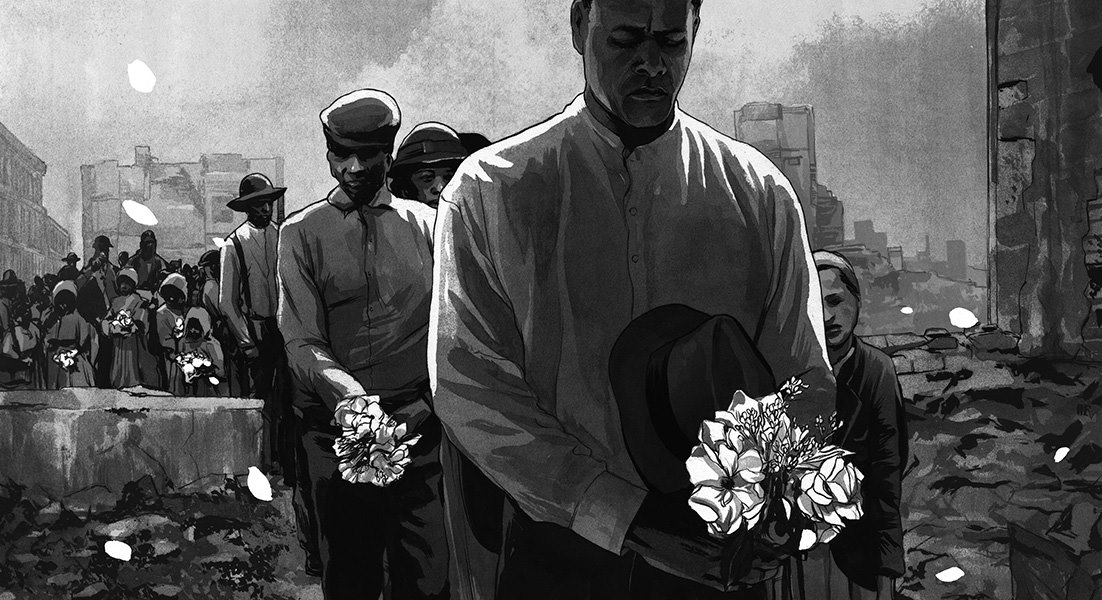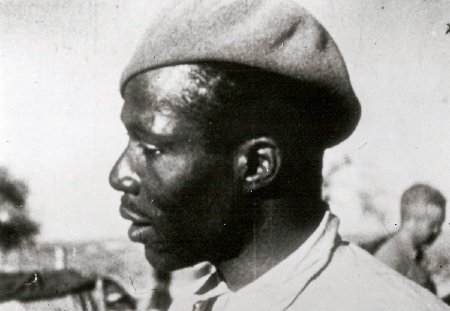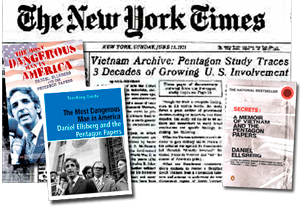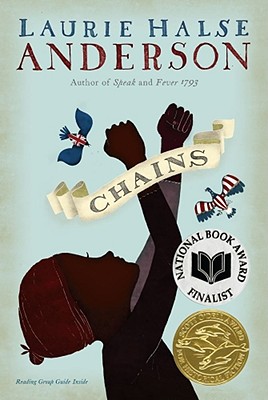Film clip. Voices of a People's History.
Dramatic reading of June Jordan's "Speech Against the Gulf War" (1991) by Kathleen Chalfant.
Continue reading
Film clip. Voices of a People's History.
Dramatic reading of Dr. Martin Luther King's "Beyond Vietnam" (1967) speech by Michael Ealy.
Continue reading
Book — Non-fiction. By Howard Zinn. Introduction by Marilyn B. Young. 2011. 272 pages.
Essays spanning 1962 to 2006 that examine specific wars, wartime incidents, and the force of non-violence to move beyond war, if we are to survive.
Teaching Activity by Howard Zinn
Continue reading
Teaching Activity. By Katie Baydo-Reed. Rethinking Schools. 10 pages.
Students hold a mixer and a mock trial in preparation for reading literature about internment.
Continue reading
Teaching Activity. By Moé Yonamine. Rethinking Schools. 18 pages.
Poetry, photography, and text are used in this role play to teach about the seldom told history of Japanese Latin American internment during WWII.
Continue reading
Book — Non-fiction. By Joel Andreas. 2005. 80 pages.
Spanish-language edition of the expose on militarism in graphic novel format. Accessible for high school and above.
Continue reading
Book — Non-fiction. By John G. Neihardt, Standing Bear, Raymond J. Demallie. 2008. 334 pages.
The life and visions of the Lakota healer Nicholas Black Elk and the history of his Sioux people.
Continue reading
Profile.
Chief Joseph Hinmton Yalaktit (1840 -1904), a Nez Percé Indian chief in what is now northeastern Oregon.
Continue reading
Teaching Activity. By Craig Gordon, Urban Dreams, and the Martin Luther King Jr. Papers Project. 2003, updated in 2017.
Lesson to introduce students to the speeches and work of Dr. King beyond "I have a dream."
Continue reading
Book — Non-fiction. Edited by Timothy Patrick McCarthy. 2012. 496 pages.
A concise and accessible volume of the seminal writings of Howard Zinn including articles and excerpts from A People's History of the United States and You Can't Be Neutral on a Moving Train.
Continue reading
Book — Fiction. By Margarita Engle. 2009. 208 pages.
Daniel has escaped Nazi Germany and must make his way in Cuba once New York turns away his ship full of refugees.
Continue reading
Book — Non-fiction. By William Loren Katz and Marc Crawford. 2013. 196 pages.
Interviews, documents, and photos from the first fully integrated United States army, who volunteered to help Spain defend its democracy against fascism.
Continue reading
Book — Non-fiction. By Howard Zinn. 2012. 184 pages.
Compilation of articles Zinn penned for The Progressive magazine from 1980 to 2009.
Continue reading
Article. By David W. Blight. 2011.
The people's history of Memorial Day in Charleston, South Carolina during Reconstruction.
Continue reading
Teaching Guide. Edited by Bill Bigelow and Jeff Edmundson. 1990. 130 pages.
Fourteen interactive lessons on the history of Nicaragua.
Continue reading
Book — Non-fiction. By John Booth, Christine Wade, and Thomas Walker. 2014. 374 pages.
A primer on the history of Costa Rica, Nicaragua, El Salvador, Guatemala, and Honduras.
Continue reading
Book — Non-fiction. By Howard Zinn, edited by Anthony Arnove. 2012. 384 pages.
Speeches spanning several decades that convey Zinn's analysis of history and politics with wit and wisdom.
Continue reading
Teaching Guide. Edited by Jody Sokolower. Rethinking Schools. 2013. 132 pages.
A collection of Rethinking Schools articles and lessons for K-12 on U.S. military engagement in Afghanistan and the Middle East.
Continue reading
Article. By Jerry Lembcke. 2013.
Reflections on the pros and cons of student oral histories with Vietnam War veterans.
Continue reading
Oliver Law became first Black commander of a U.S. army, the integrated Abraham Lincoln Brigade.
Continue reading
Article. By Bill Bigelow. 2013. If We Knew Our History Series.
While new U.S. history textbooks mention the Pentagon Papers, none grapples with the actual import of the Pentagon Papers.
Continue reading
Book — Fiction. By Margarita Engle. 2010. 384 pages.
Bilingual book of historical fiction in verse about Cuba's long fight for independence in the 19th century.
Continue reading
Teaching Activity. Zinn Education Project. 21 pages.
Two lessons to introduce key facts about the Vietnam War and the Pentagon Papers, documents that provide essential history that is often ignored by textbooks.
Continue reading
Digital collection. Resources and programs on the history and legacy of the Abraham Lincoln Brigades.
Continue reading
Book — Historical fiction. By Laurie Halse Anderson. 2010. 336 pages.
Historical fiction based on the life of an enslaved teenager during the Revolutionary War.
Teaching Activity by Laurie Halse Anderson
Continue reading

